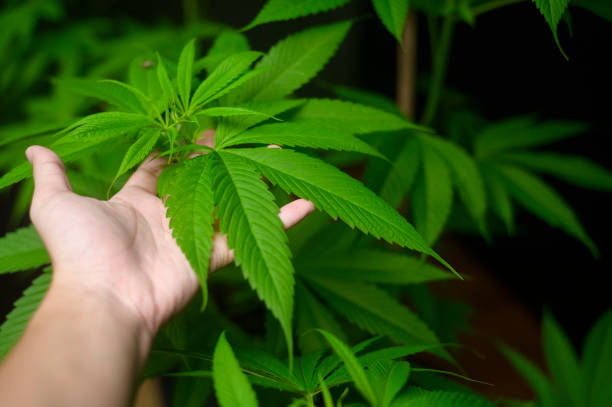
Understanding Legalities Around Denver Dispensaries: Writing about current laws surrounding marijuana use for both medical and recreational purposes in Denver as well as potential future changes or challenges.
Posted by on 2024-01-03
Title: Understanding Legalities Around Denver Dispensaries
The evolving landscape of cannabis legislation in Denver, an indubitably intriguing topic, is marked by a dynamic interplay between medical necessity, recreational indulgence and legal parameters. As societal perspectives continue to evolve, the city's marijuana laws are perennially metamorphosing. To understand this intricate tapestry of regulations and stipulations surrounding Denver dispensaries, one must delve into the minutiae of current laws and potential future challenges.
In 2000, Colorado voters approved Amendment 20 thereby legitimizing the use of medical marijuana. Medical cannabis patients can possess up to two ounces of marijuana and grow six plants albeit three or fewer being mature flowering plants producing usable marijuana. Additionally, 'Extended Plant Count' patients are permitted to cultivate more than six plants due to their specific health conditions.
In 2012 with the advent of Amendment 64, Colorado became an avant-garde state legalizing recreational marijuana use for adults aged 21 years and older. This groundbreaking statute allows individuals to possess one ounce of marijuana while simultaneously permitting home cultivation limited to six plants per residence.
Denver dispensaries operate under stringent rules encapsulated in Chapter 6 Article V Division 3 - Retail Marijuana Code. They cannot transact before 8 AM or post 10 PM and must retain surveillance footage for forty days ensuring compliance with guidelines.
However, despite these strides towards legalization there remain numerous challenges on the horizon that could potentially disrupt Denver’s dispensary scene. A change in federal law remains a plausible threat as it currently classifies cannabis as a Schedule I drug alongside heroin thus criminalizing its distribution.
Another formidable challenge pertains to banking regulations which often deem dispensaries ineligible for traditional banking services due to federal restrictions on drugs leading them into cash-only operations making them susceptible targets for crimes.
Furthermore, zoning laws present another hurdle as they require dispensaries be located at least 1,000 feet from schools thereby limiting available locations for opening new dispensaries.
Denver’s marijuana laws are constantly in flux due to evolving societal perspectives and political shifts. As such, it is critical for those involved - whether users, dispensary owners or policymakers - to stay abreast of the changing legal landscape. While the future may hold numerous challenges, understanding these complexities can help navigate this emerging industry with prudence and foresight.
In conclusion, comprehending the legalities around Denver dispensaries necessitates a holistic exploration of current statutes as well as an anticipation of potential future hurdles. It is only through this balanced perspective that one can truly grasp the intricacies of Denver's vibrant and ever-evolving cannabis industry.
The evolving landscape of cannabis legislation in Denver, an indubitably intriguing topic, is marked by a dynamic interplay between medical necessity, recreational indulgence and legal parameters. As societal perspectives continue to evolve, the city's marijuana laws are perennially metamorphosing. To understand this intricate tapestry of regulations and stipulations surrounding Denver dispensaries, one must delve into the minutiae of current laws and potential future challenges.
In 2000, Colorado voters approved Amendment 20 thereby legitimizing the use of medical marijuana. Medical cannabis patients can possess up to two ounces of marijuana and grow six plants albeit three or fewer being mature flowering plants producing usable marijuana. Additionally, 'Extended Plant Count' patients are permitted to cultivate more than six plants due to their specific health conditions.
In 2012 with the advent of Amendment 64, Colorado became an avant-garde state legalizing recreational marijuana use for adults aged 21 years and older. This groundbreaking statute allows individuals to possess one ounce of marijuana while simultaneously permitting home cultivation limited to six plants per residence.
Denver dispensaries operate under stringent rules encapsulated in Chapter 6 Article V Division 3 - Retail Marijuana Code. They cannot transact before 8 AM or post 10 PM and must retain surveillance footage for forty days ensuring compliance with guidelines.
However, despite these strides towards legalization there remain numerous challenges on the horizon that could potentially disrupt Denver’s dispensary scene. A change in federal law remains a plausible threat as it currently classifies cannabis as a Schedule I drug alongside heroin thus criminalizing its distribution.
Another formidable challenge pertains to banking regulations which often deem dispensaries ineligible for traditional banking services due to federal restrictions on drugs leading them into cash-only operations making them susceptible targets for crimes.
Furthermore, zoning laws present another hurdle as they require dispensaries be located at least 1,000 feet from schools thereby limiting available locations for opening new dispensaries.
Denver’s marijuana laws are constantly in flux due to evolving societal perspectives and political shifts. As such, it is critical for those involved - whether users, dispensary owners or policymakers - to stay abreast of the changing legal landscape. While the future may hold numerous challenges, understanding these complexities can help navigate this emerging industry with prudence and foresight.
In conclusion, comprehending the legalities around Denver dispensaries necessitates a holistic exploration of current statutes as well as an anticipation of potential future hurdles. It is only through this balanced perspective that one can truly grasp the intricacies of Denver's vibrant and ever-evolving cannabis industry.